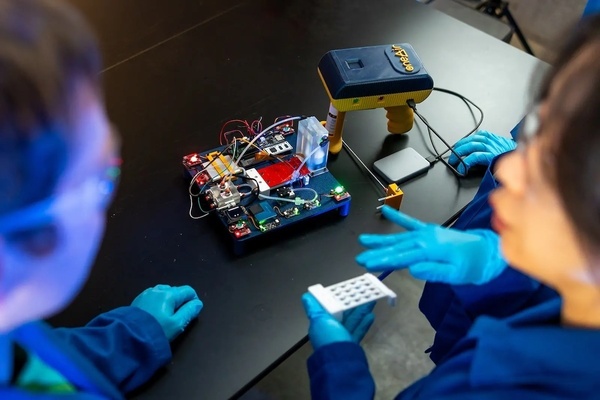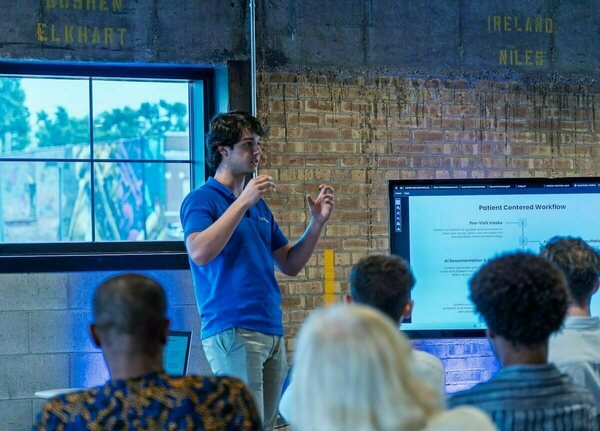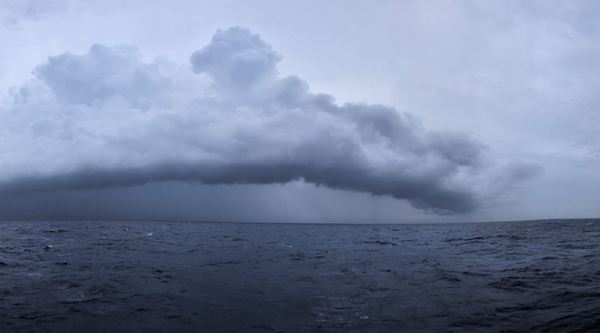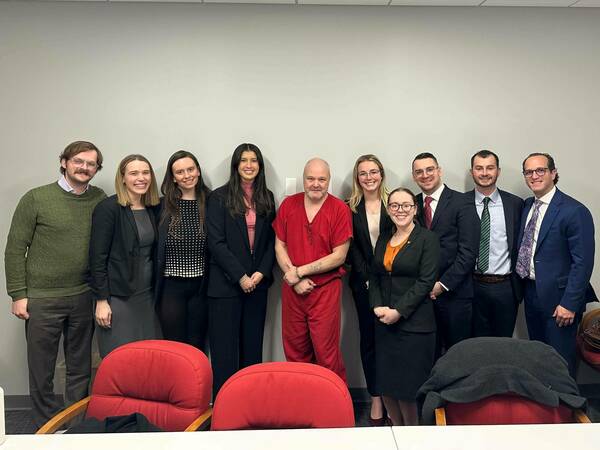Engineers and cancer researchers develop tunable biomaterials to treat lymphedema
The lymphatic system plays a vital role in many health issues, such as heart disease, neurodegenerative conditions, inflammation, metabolic disorders, cancer, and lymphedema. Despite its importance, scientists still lack many details about how the lymphatic system grows and functions, and this prohibits the development of effective treatments.
Controlling the growth of new lymphatic vessels, either in the body or through lab-grown methods, could be a promising long-term treatment for various diseases connected to the lymphatic system.
In a study forthcoming in Communications Biology, bioengineers and cancer researchers at the University of Notre Dame have discovered a new way to grow lymphatic vessels—small channels that help move fluid in the body—in a lab setting. This could be helpful for treating diseases like cardiovascular problems and lymphedema, a swelling, usually in the arms or legs, caused by a buildup of lymph fluid.
“We used tunable biomaterials to promote lymphatic regeneration, which can be used to treat lymphedema in children with rare diseases, as well as patients with breast cancer,” said Donny Hanjaya-Putra, assistant professor of aerospace and mechanical engineering. “This new method may help researchers study lymphatic diseases more effectively and could someday enable breakthrough approaches to treat lymphedema.”

Scientists used a gel made from hyaluronic acid—a natural substance found in the body—to create a controlled environment where human adult stem cells can form these vessels. By adjusting the gel’s stiffness and adding growth molecules, they managed to make the cells assemble into vessels on their own in just a few days.
These lab-grown vessels could survive for weeks in the lab and even successfully integrated when implanted in an animal model that mimics the conditions of patients with breast cancer.
This new hydrogel system offers a flexible and efficient way to study lymphatic vessel growth without relying on complex and costly animal models. Instead of using many mice for testing responses to growth factors or drugs, researchers can make multiple hydrogel samples with precise amounts of these substances to quickly see their effects.
“We are very eager to work with companies who are interested in using these lab-grown lymphatic vessels in their drug screening pipeline, as well as with local community hospitals, who are excited to translate this relatively simple method as a surgical alternative for patients with lymphedema,” said Hanjaya-Putra.
Laura Alderfer and Sanjoy Saha, former and current Ph.D. students in Hanjaya-Putra’s lab, served as the paper’s first authors. Notre Dame researcher Laurie Littlepage, Campbell Family Associate Professor of Cancer Research in the Department of Chemistry and Biochemistry, led the chemical synthesis and animal aspects of the study. This research was supported by a Career Development Award from the American Heart Association, National Science Foundation, and National Institutes of Health as well as the Harper Cancer Research Institute.
Latest Research
- Fighting for Better Virus DetectionAn electronic nose developed by Notre Dame researchers is helping sniff out bird flu biomarkers for faster detection and fewer sick birds. Read the story
- Notre Dame’s seventh edition of Race to Revenue culminates in Demo Day, a celebration of student and alumni entrepreneurship…
- Managing director brings interdisciplinary background to Bioengineering & Life Sciences InitiativeThis story is part of a series of features highlighting the managing directors of the University's strategic initiatives. The managing directors are key (senior) staff members who work directly with the…
- Monsoon mechanics: civil engineers look for answers in the Bay of BengalOff the southwestern coast of India, a pool of unusually warm water forms, reaching 100 feet below the surface. Soon after, the air above begins to churn, triggering the summer monsoon season with its life-giving yet sometimes catastrophic rains. To better understand the link between the formation of the warm pool and the monsoon’s onset, five members of the University of Notre Dame’s Environmental Fluid Mechanics Laboratory set sail into the Bay of Bengal aboard the Thomas G. Thompson, a 274-foot vessel for oceanographic research.
- Exoneration Justice Clinic Victory: Jason Hubbell’s 1999 Murder Conviction Is VacatedThis past Friday, September 12, Bartholomew County Circuit Court Judge Kelly S. Benjamin entered an order vacating Exoneration Justice Clinic (EJC) client Jason Hubbell’s 1999 convictions for murder and criminal confinement based on the State of Indiana’s withholding of material exculpatory evidence implicating another man in the murder.
- Notre Dame to host summit on AI, faith and human flourishing, introducing new DELTA frameworkThe Institute for Ethics and the Common Good and the Notre Dame Ethics Initiative will host the Notre Dame Summit on AI, Faith and Human Flourishing on the University’s campus from Monday, Sept. 22 through Thursday, Sept. 25. This event will draw together a dynamic, ecumenical group of educators, faith leaders, technologists, journalists, policymakers and young people who believe in the enduring relevance of Christian ethical thought in a world of powerful AI.













